Best Parenting Books for Managing Toddler Behaviour: A Parent’s Guide
Introduction

Parenting toddlers is a journey filled with joy, challenges, and important developmental milestones. As toddlers start to express their individuality, parents may encounter behaviors like tantrums, defiance, and emotional outbursts. Books for Managing Toddler Behaviour offer valuable insights into these challenges, providing strategies to navigate difficult moments. With the right tools, it becomes easier to manage and understand your child’s actions, fostering a supportive and positive parenting approach.
Fortunately, there are many parenting books specifically designed to help parents guide their toddlers with compassion, respect, and effectiveness. Whether you’re looking for strategies to calm tantrums, promote emotional regulation, or foster cooperation without bribery, the right book can provide the guidance you need.
In this article, we’ve curated a list of some of the best books for managing toddler Behaviour. Below is a quick overview of each book, followed by a deeper dive into the key insights they offer.
Summary Table: Best Parenting Books for Managing Toddler Behaviour
|
Book Title |
Key Focus |
Best For | |
|
1 |
The Whole-Brain Child 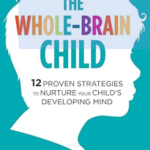 |
Neuroscience-based approach to understanding toddler brain development and emotional growth. |
Parents looking to understand brain development and manage Behaviour with empathy. |
|
2 |
5–15 years 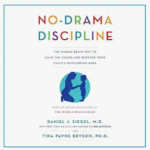 |
Strategies for disciplining without drama, focusing on empathy and understanding. |
Parents interested in a calm, respectful approach to discipline. |
|
3 |
8–16 years 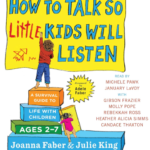 |
Effective communication strategies for fostering cooperation in toddlers. |
Parents needing communication tools to address misbehaviour. |
|
4 |
6–14 years 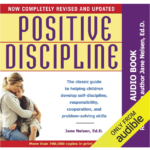 |
Non-punitive strategies to teach responsibility, empathy, and self-regulation. |
Parents seeking a positive, non-punitive approach to discipline. |
|
5 |
2–6 years 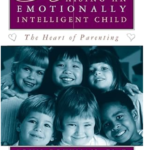 |
Emotion coaching to help toddlers understand and regulate their emotions. |
Parents wanting to foster emotional intelligence in their toddlers. |
|
6 |
2–6 years 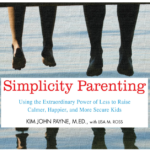 |
Creating a calm and predictable home environment to support healthy Behaviour development. |
Parents who want to reduce chaos and simplify family life to encourage positive Behaviour. |
1. “The Whole-Brain Child” by Daniel J. Siegel and Tina Payne Bryson
Why It’s Great:
The Whole-Brain Child” offers a scientifically grounded approach to parenting, exploring how toddlers’ brains develop and process information. Daniel J. Siegel and Tina Payne Bryson explain that understanding the brain’s growth stages can help parents manage behavioral challenges. The book emphasizes how parents can foster emotional regulation, reduce meltdowns, and improve communication through brain-based strategies.
Discover more helpful tools in Best Parenting Books for Managing Toddler Behaviour: A Parent’s Guide
Key Takeaways:

“The Whole-Brain Child” provides neuroscience-based strategies for parents to connect with their toddlers and manage challenging Behaviours.
2. “No-Drama Discipline” by Daniel J. Siegel and Tina Payne Bryson
Why It’s Great:
“No-Drama Discipline” builds on the principles of Siegel and Bryson’s first book but focuses specifically on discipline strategies. It offers practical advice for managing toddler misbehavior calmly, with empathy, and without creating power struggles. This book is particularly beneficial for parents who want to discipline their toddlers in a way that avoids escalating tension or creating a sense of fear.
Key Takeaways:

“No-Drama Discipline” emphasizes calm, empathetic responses to misBehaviour without escalating tension.
For calming strategies, check out: How to Calm an Overstimulated Toddler Quickly and Safely.
3. “How to Talk So Little Kids Will Listen” by Joanna Faber and Julie King
Why It’s Great:
A popular book in the parenting community, “How to Talk So Little Kids Will Listen” offers powerful communication strategies specifically designed for toddlers. Books for managing toddler behavior, like this one, provide parents with the tools they need to manage toddler misbehavior while promoting cooperation, emotional expression, and healthy communication. This approach helps build a stronger, more understanding relationship between parents and toddlers.
Key Takeaways:

“How to Talk So Little Kids Will Listen” offers communication strategies that promote cooperation and emotional understanding in toddlers.
4. “Positive Discipline” by Jane Nelsen
Why It’s Great:
“Positive Discipline” is an authoritative guide to non-punitive discipline strategies that emphasize respect, responsibility, and kindness. Books for managing toddler behavior, like this one, teach parents how to set boundaries and use consistent, kind discipline methods that help toddlers understand consequences without resorting to punishment. This approach fosters mutual respect and supports emotional growth.
For persistent challenges like biting or hitting, combine positive reinforcement with strategies like time-ins or natural consequences. For more guidance, read: How to Stop a Toddler from Biting: Proven Techniques.
Key Takeaways:

“Positive Discipline” helps parents teach toddlers responsibility and empathy through kind, consistent discipline.
5. “Raising an Emotionally Intelligent Child” by John Gottman
Why It’s Great:
John Gottman’s “Raising an Emotionally Intelligent Child” is based on the concept of emotion coaching, a technique that helps toddlers identify and manage their emotions. Books for managing toddler behavior, like this one, empower parents to help their children navigate big feelings and develop emotional resilience, which is key to handling behavior challenges. This approach fosters emotional understanding and strengthens parent-child connections.
Key Takeaways:

“Raising An Emotionally Intelligent Child” helps parents teach toddlers to understand and manage their emotions through coaching.
Related Read: Dealing with School Behavioural Issues as a Single Parent
6. “Simplicity Parenting” by Kim John Payne and Lisa M. Ross
Why It’s Great:
“Simplicity Parenting” focuses on creating a calm, predictable environment that supports emotional growth and reduces stress. Books for managing toddler behavior, like this one, offer parents strategies for simplifying their home life, which leads to better behavior in toddlers by minimizing external stressors. This approach helps foster a sense of security and emotional well-being.
Key Takeaways:

“Simplicity Parenting” helps parents create calm, predictable environments that foster emotional growth and positive Behaviour in toddlers.
Discover more helpful tools in Top 7 Toddler-Safe Time-Out Chairs That Parents Love
Conclusion
Parenting toddlers doesn’t come with a one-size-fits-all solution. However, with the right resources, parents can better understand their toddlers’ behavior and respond in ways that promote emotional growth, cooperation, and respect. The books we’ve highlighted in this guide offer a wealth of knowledge and practical advice, making them invaluable tools for navigating toddlerhood and fostering a positive, supportive environment.
By exploring these insightful books, you can find the strategies that resonate most with your parenting style and your child’s unique needs. No matter where you are in your parenting journey, these books provide the tools to help you manage toddler Behaviour with compassion and confidence.
For more parenting advice and strategies, check out these related articles:

